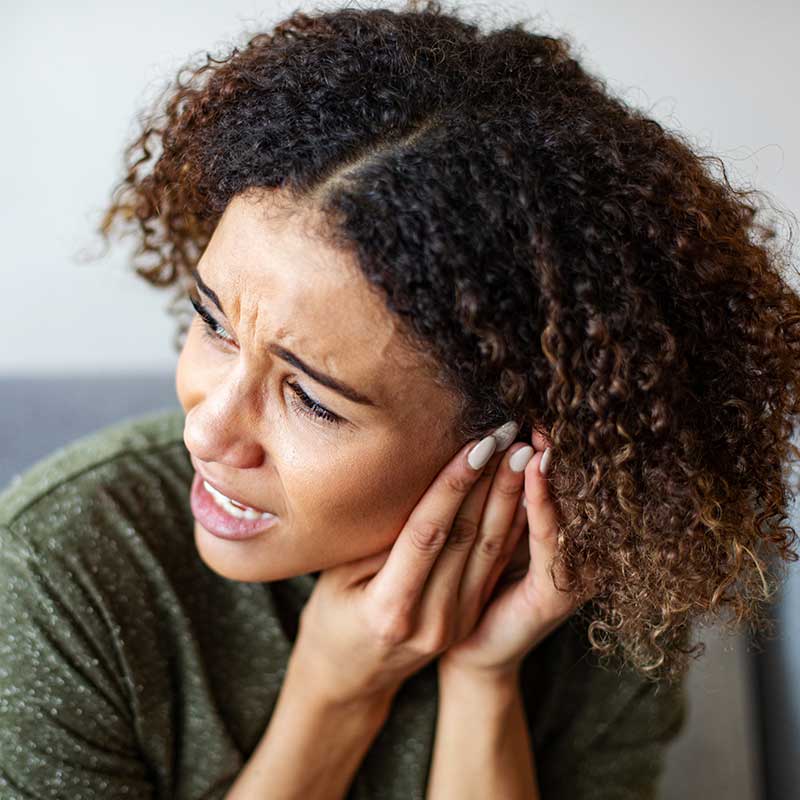
Tinnitus Treatment: How to Manage the Ringing in Your Ears
Are you hearing a ringing sound, white noise, or clicking in your ears? You may be among the 50 million Americans each year suffering from tinnitus. Tinnitus can even sound like wind or crackling. Because it’s constant, tinnitus can be extremely distracting and may keep you awake at night. Despite all the hype you may have heard on social media, there is no cure for tinnitus. However, there are many ways to treat it successfully so you can sleep better and go back to enjoying quiet moments.
Treatment Often Depends on What’s Causing Your Tinnitus
Tinnitus is often associated with hearing loss or can occur after concerts or other extended loud noise. However, tinnitus can also be a side effect of medication, allergies, high blood pressure, or other health conditions. Uncovering the root cause of your tinnitus will help you find the best solution to treat tinnitus.
Get Relief From Your Tinnitus
Make an appointment and we’ll go through your medical history and do a full ear exam including a hearing evaluation. Understanding what caused the ringing in your ears and what makes it worse will help us determine which tinnitus treatments are right for you.
What’s Causing My Pulsatile Tinnitus?
When most people talk about their tinnitus, they describe a ringing, humming or tone-like sound. It’s generally the result of damage to your inner ear. This causes mixed signals that your brain interprets as a strange sound.
Pulsatile tinnitus is something else entirely.
Pulsatile tinnitus happens when you can hear the blood circulating near your ears. With each heartbeat, you might hear something like a tha-thump, wha-whoosh or chu-chug.
It may not sound like what most people call tinnitus, but just like the other tinnitus, it could be a warning sign. Let’s explore what causes pulsatile tinnitus and what you may be able to do you stop it.
Pulsatile Tinnitus Causes
Doctors don’t consider tinnitus to be a disease itself. Instead, they label it as a symptom of an underlying condition. Understanding what that condition is will often give hearing specialists the clues they need to help reduce your tinnitus symptoms.
This is especially true when people hear a heartbeat in the ear, which accounts for only 10% of tinnitus cases.
How Do I Stop the Constant Ringing in My Ears?
Until we identify a treatment option, avoid things that appear to make your tinnitus worse. If you are regularly exposed to loud noise through your work or home environment, make sure you have adequate hearing protection. If you’re taking medications, check the side effects and if they are known to cause tinnitus consult your doctor to see if an alternative treatment would be a better option for you.
Common Tinnitus Treatments
Tinnitus treatments can be as easy as removing impacted earwax, changing medications, or taking measures to lower your blood pressure. If those are not the cause of your tinnitus, you may need other treatments such as special hearing aids, maskers, allergy treatments, meditation, or cognitive behavioral therapy.

